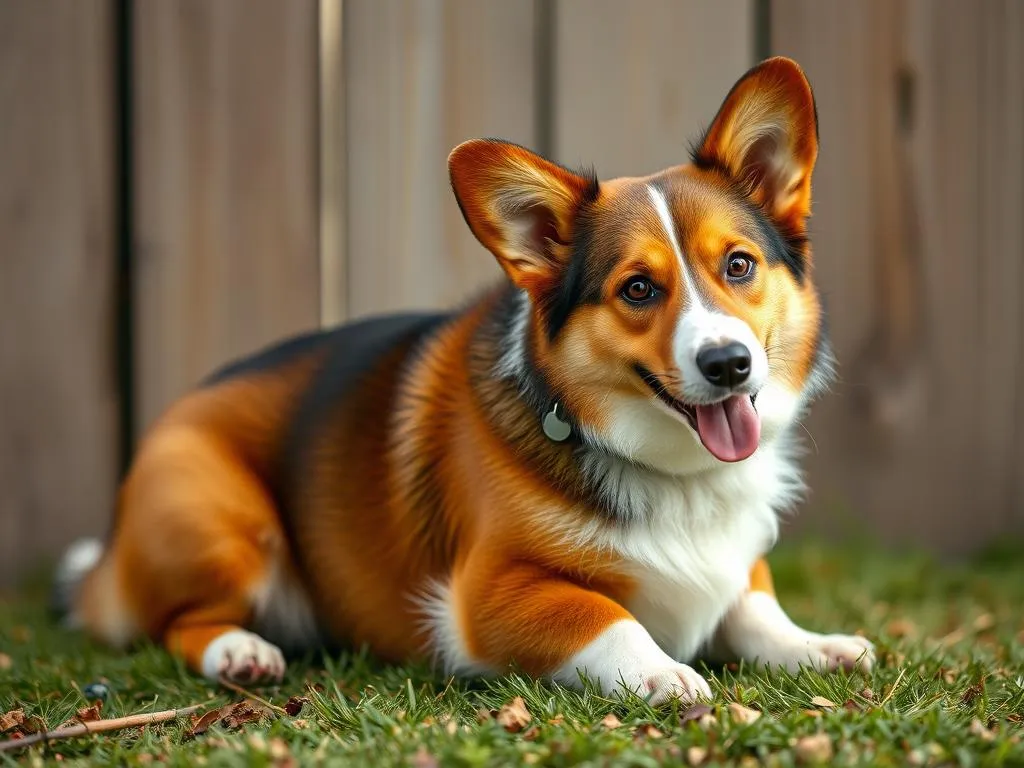
Understanding dog breeds is essential for anyone considering bringing a new canine companion into their home. Each breed comes with its unique set of characteristics, temperamental traits, and care requirements. Among the many delightful breeds out there, the Pembroke Welsh Corgi stands out for its charming appearance and playful personality. This article provides a comprehensive look at the Pembroke Welsh Corgi, detailing its history, physical characteristics, temperament, health, care, and more.
Understanding Dog Breeds
What Defines a Dog Breed?
A dog breed is defined by a set of characteristics that differentiate it from others. These characteristics include physical traits such as size, coat type, and color, as well as behavioral tendencies. Genetic factors play a significant role in these traits, leading to established breed standards set by various kennel clubs. Understanding these attributes is crucial for potential dog owners, as they can influence the compatibility of the breed with the owner’s lifestyle.
Importance of Breed Selection
Choosing the right breed is paramount as it affects behavior, health, and lifestyle compatibility. For example, some breeds are more energetic and require extensive exercise, while others are more laid back. Knowing these differences can help potential dog owners select a breed that aligns with their daily routines, family dynamics, and living situations.
Pembroke Welsh Corgi Overview
History of the Pembroke Welsh Corgi
The Pembroke Welsh Corgi has its roots in Wales, where it was originally bred for herding cattle. These small yet sturdy dogs were valued for their intelligence and agility, allowing them to navigate around livestock with ease. The breed became widely recognized after gaining popularity with notable figures, such as Queen Elizabeth II, who has owned more than 30 Corgis throughout her reign. This royal endorsement has certainly contributed to the breed’s fame and appeal.
Physical Characteristics
The Pembroke Welsh Corgi is known for its distinctive appearance. They typically weigh between 25 to 30 pounds and stand about 10 to 12 inches tall at the shoulder. Their bodies are long and low, supported by short, sturdy legs that give them a unique silhouette. The breed has a double coat, consisting of a soft undercoat and a weather-resistant outer coat, which can come in various colors, including red, sable, fawn, and even black and tan. One of the most recognizable features of the Pembroke Welsh Corgi is its large, upright ears.
Temperament and Personality
Pembroke Welsh Corgis are known for their lively and affectionate nature. They are intelligent, eager to please, and often excel in obedience training. Generally, they are good with children and can be quite playful, making them excellent family pets. Their social behavior is friendly, often getting along well with other pets when properly socialized. However, Corgis can exhibit herding instincts, which may lead them to nip at heels—an endearing yet sometimes mischievous trait.
Health and Care for Pembroke Welsh Corgis
Common Health Issues
Like many breeds, Pembroke Welsh Corgis are prone to certain genetic health issues. These include hip dysplasia, which can lead to arthritis, and progressive retinal atrophy, a degenerative eye condition. Routine veterinary check-ups and preventative care are essential to monitor and maintain their health. Regular exercise and weight management are also critical, as obesity can exacerbate health problems.
Nutrition Requirements
Feeding a Pembroke Welsh Corgi a balanced diet is vital for their overall health. High-quality dog food that meets their nutritional needs is recommended. Portion control is crucial, given this breed’s tendency to gain weight. Owners should consult their veterinarian for specific feeding guidelines based on their dog’s age, weight, and activity level.
Exercise Needs
Pembroke Welsh Corgis are energetic dogs that require daily exercise to stay healthy and happy. A minimum of 30 to 60 minutes of exercise each day is recommended, which can include walks, playtime, and mental stimulation activities. Engaging them in games like fetch or agility training can also be beneficial for both their physical and mental well-being.
Training and Socialization
Basic Training Techniques
Training is a fundamental aspect of raising a well-behaved Pembroke Welsh Corgi. Early training is essential, as it helps to establish good habits and behaviors. Positive reinforcement techniques, such as treats and praise, are highly effective in motivating Corgis. Consistency is key; commands should be reinforced regularly to ensure the dog understands what is expected.
Socialization Tips
Socialization is crucial for Pembroke Welsh Corgis to develop into well-rounded adults. Introducing them to various environments, people, and other animals can help them become more adaptable and confident. Puppy classes, playdates, and trips to the dog park are excellent opportunities for socialization. Owners should aim to expose their Corgis to different experiences, sounds, and sights during their formative months.
Living with a Pembroke Welsh Corgi
Home Environment
Pembroke Welsh Corgis can adapt well to different living situations, whether in an apartment or a house with a yard. However, they thrive in environments where they can have ample interaction with their family. Owners should consider dog-proofing their living space to prevent accidents—safeguarding electrical cords, securing trash cans, and removing hazardous items can help keep a curious Corgi safe.
Grooming Needs
Grooming is an essential aspect of caring for a Pembroke Welsh Corgi. Their double coat requires regular brushing, typically at least once a week, to manage shedding and keep their coat healthy. During shedding seasons, additional brushing may be necessary. Bathing should be done as needed, and nail trimming should occur every few weeks to prevent discomfort.
Lifespan and Aging
The average lifespan of a Pembroke Welsh Corgi is around 12 to 15 years. Factors such as genetics, diet, exercise, and overall care can influence their longevity. As Corgis age, they may require adjustments in their diet, exercise routines, and veterinary care. Monitoring their health and behavior changes is key to ensuring they remain comfortable and happy in their senior years.
Fun Facts and Trivia about Pembroke Welsh Corgis
The Pembroke Welsh Corgi is not only a beloved pet but also has some unique traits that make them particularly interesting. For instance, Corgis are known for their “Corgi butts,” which have gained a following on social media, leading to a plethora of adorable photos and memes. Additionally, they have made appearances in various movies and TV shows, further cementing their status in popular culture.
Conclusion
The Pembroke Welsh Corgi is a delightful breed characterized by its playful nature, intelligence, and unique look. Understanding its history, health needs, and care requirements is essential for any prospective owner. As with any dog breed, the joys of ownership come with responsibilities. It’s crucial to consider your lifestyle and environment to ensure that a Pembroke Welsh Corgi is the right fit for your home. This charming breed can bring immeasurable joy and companionship to those who understand and embrace their needs.









